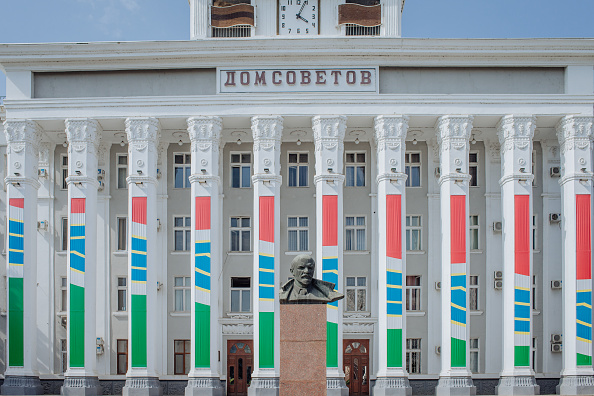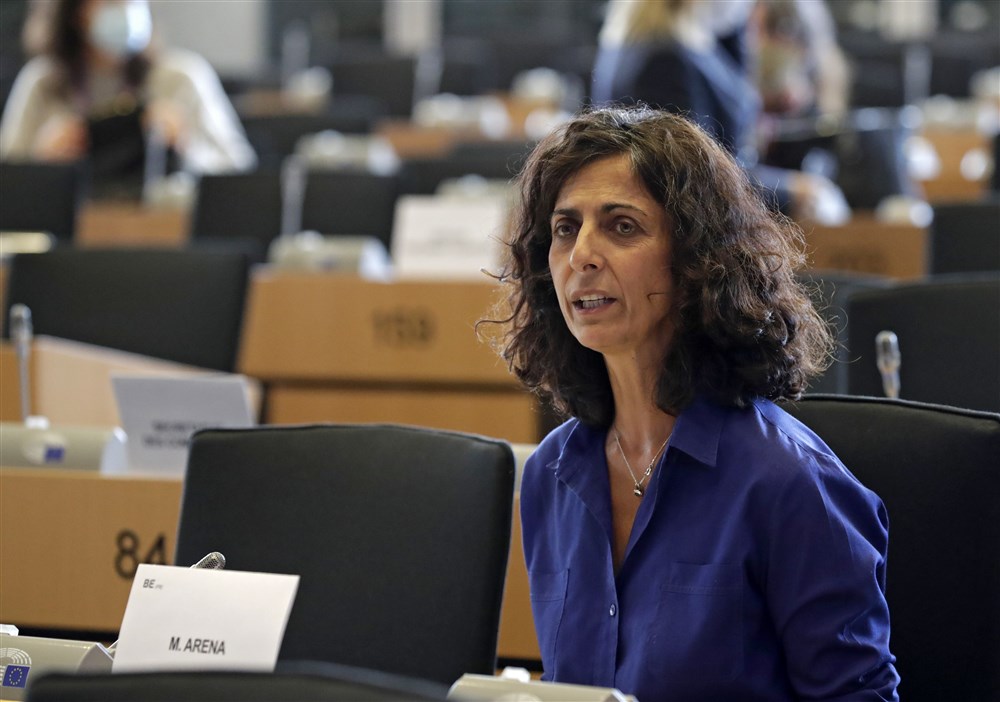Each year, at the eleventh hour of the eleventh day of the eleventh month, a two-minute silence descends upon the whole of Britain. It marks the exact time when gunfire stopped on the Western front in 1918 after four gruesome, bloody years, bringing the Great War to a close. In that moment, every November 11, the nation remembers and pays homage to its Glorious Dead – those who fell fighting for Britain, not just in the First World War but in all its wars.
Other nations across the Commonwealth and former wartime allies like France and the America also mark Armistice Day with reverence but, in most cases, not quite with the same deep meaning as in Britain. Here, the First World War was a cataclysmic event with a far greater social and cultural impact than even the Second World War.
November 11 is perhaps the closest to a kingdom-wide “national day” that Britain has, as a union of four separate nations and as a culture generally averse to loud state-organised nationalist displays. In characteristic British fashion, this most solemn of days is marked merely by respectful silence, the laying of wreaths, and the wearing of poppies, a symbol of the fields of France and Flanders where so many lives were lost.
Honouring the sacrifice of men and women who died for King and country, to defend British freedoms, values and way of life, is something that goes to the very core of the UK’s identity. And the focal point of Armistice Day, in many ways perhaps the most “sacred” place of civic devotion in Britain is the Cenotaph: the monument standing in Whitehall, close to Downing Street and Parliament, that carries the greatest weight of the memory of the fallen, to whom it is dedicated.
“Pretty please”
It is against this background of solemnity and national meaning around Armistice Day that the whole world is now witness to what must surely be the most abject spectacle of meekness, disgraceful self-abasement and utter moral failure of a Western government in the face of overt, Islamist-led provocations and sedition right in the heart of civilised Europe’s largest city.
Ever since the demented orgy of butchery and unspeakable atrocities visited by the ISIS/Hamas Islamic beasts against innocent Israelis on October 7, London has been rocked by weekly terrorist-sympathising, anti-Semitic protests on a massive scale. The Met Police, famously now more adept at arresting people for “hate crimes” than investigating actual crimes like burglaries, has shamefully allowed even ISIS and Taliban flags to be paraded on the city streets, while bearing down on people waving English flags.
There has been no serious attempt to prevent the manifestation of Islamist power in the heart of London – including inflammatory speeches against the British state and constitution, or mass Muslim prayers in Whitehall, a known symbol of radical Islamic defiance and of assertion of Islamic ascendancy in “host nations”. And all this is happening, all is permitted, under a Conservative government.
But the final straw has now come in relation to what is set to happen next Saturday, November 11. London’s Met Police has resorted to begging the organisers of these demonstrations to call off their planned march in the proximity of the Cenotaph on Armistice Day. At the time of writing, Mark Rowley, who leads the Met, insists that the “risk threshold” that can trigger a police ban on the protest in that area has not been reached. Therefore, he finds himself unable to recommend this step to the Home Secretary (i.e. the UK interior minister), Suella Braverman. Both she and the Prime Minister, Rishi Sunak in turn deny any responsibility, hiding behind the notion that the police are “independent”.
So all the police can do, apparently, is ask the Islamists nicely to allow the Armistice Day ceremonies – including at the Cenotaph – to proceed with at least a measure of dignity without too much disruption on the day. In the meantime, it has been days since the Armed Services flags that always fly on the Cenotaph have been removed “for cleaning” – something that never happens for so long, and which appears to conceal a fear that protesters might desecrate them. This seems to be just another Met Police untruth after the even more egregious case two weeks ago when the Service stated that the word “Jihad”, openly shouted on London’s streets with insolence and impunity, simply has “a number of meanings” – it’s one of these relative terms that we shouldn’t be too fussed about. Nothing to see here.
The British State’s utter failure to rein in the Islamist outrages seen at these demonstrations – including the genocidal slogan, “from the river to the sea” – has been both disgusting and alarming, and paralleled in other countries from France to Germany or the United States. But giving in to these ISIS/Hamas-lovers on Armistice Day, having to “ask” their indulgence over the dignified observance of this most sacred of national remembrance events, is beyond disturbing.
Instead of the Police – or, if this wayward, woke organisation refuses, the Army – being deployed in force to clear and secure the entire Westminster for the day, the respect owed to the nation’s Glorious Dead seems to be at the mercy of the protest organisers and their decision over where to march.
And who are these people? For example, The Daily Telegraph notes that “a former Hamas chief in the West Bank, Muhammad Sawalha, helped found the Muslim Association of Britain, one of the six groups organising the Armistice Day march. Three of the groups behind the march have directors who are linked to proscribed terror organisation, with one director of the Palestinian Forum described as a “senior Hamas operative” and another from Friends of Al Aqsa having allegedly said they “salute Hamas”.” And this is just the tip of the iceberg.
Moral disarmament
The fact that we cannot muster the willpower to safeguard the dignity of even the most sacrosanct civic symbol of the nation shows that the moral disarmament of Britain – and the West’s in general – is now complete. Of course, liberals and legalists justify this behaviour by the need to observe “the right to protest”; the Met’s pathetic excuse is that they cannot “enforce decency”.
The very way in which these matters are framed indicates the depth of the problem. Western nations have been so liberal in their rights-giving, anti-colonial self-flagellation, relativism and indulgence of moral-equivalence that, even when attacked at the very heart of their values, and culturally undermined from within, we cannot find any arguments for what might justify our own defence or even survival.
We cannot name the adversary and we cannot acknowledge the problem, because doing so is now “against the law”. So we are simply spectators to our own demise, endlessly finding (liberal) excuses to avoid confronting the issue head-on and taking action to genuinely protect our values and heritage.
It is this liberal attitude – along with cynical but deluded calculations – that has enabled the tumorous growth of the Islamist extremist ecosystem in the UK (and other countries), as previously explained in these pages. Nick Timothy, a former 10 Downing Street chief of staff, has also now shown in even more shocking detail how “many organisations use our liberal system to achieve avowedly anti-liberal ends”, including the Muslim Council of Britain (MCB).
The tragedy is that we have seen the same kind of self-defeating, liberal-driven programmatic weakening of the moral fibre of our nations before – and that path led straight to world war as foes took advantage of our increasing softness.
The quintessential example of this phenomenon is interwar France, particularly in the 1930s, marked by increasing demoralisation and weak, unstable leaders and governments. Whereas the years after Versailles saw the strengthening of the martial spirit in countries like Germany and Italy, in France and Britain the tendency was towards peace and indeed the suppression of any “militarist” tendencies. Another world war was unimaginable, so in the democratic West the pacifists set to work to root out from the culture of their countries anything that may conceivably give rise to future ill-feelings towards other nations.
This was primarily an educational project; in France, already starting in the 1920s, it was primary schoolteachers who took the lead in cleansing classroom tuition from militaristic or nationalistic narratives and values, in the name of désarmement moral and hoped-for global concord. Instead of epic or adventurous renderings of the Great War – such as Ernst Junger’s Storm of Steel – that might maintain a nation’s fighting spirit, the conflict was re-told purely as a tragedy. In Britain, the task of swinging the pendulum all the way to weak, appeasement-ready pacifism fell to its exquisite but often depressive “war poets” like Wilfred Owen or Siegfried Sassoon.
By the early 1930s moral disarmament had become a matter of interest for the League of Nations itself. Ironically, it was a memorandum from the Polish delegation which framed the issue and put it on the agenda of the 1932 Geneva World Disarmament Conference. The paper called for teaching methods and schoolbooks to be “examined” for “everything capable of arousing hatred of foreigners”. Conversely, it recommended “inculcating in young people’s minds the dominating ideas of the League of Nations,” and educating them “in the spirit of international solidarity”.
Later, the Geneva conference considered proposals for how governments should work to “avoid the showing of films, the broadcasting of programmes or the organisation of performances” that could “wound the legitimate sentiments of other countries”. Here was a concern with causing offence and emotional “harm” that, in an expanded form – to include not just countries, but minority “groups” – we have taken to such a high pitch of perfection in our times.
These trends continued throughout the 1930s, with risk-averse and head-in-the-sand appeasers, together with straight-up pacifists of all stripes, especially from the Left, conditioning their own societies – and governments – into a remarkable state of moral anaesthesia towards the fascists wolves already at the door. Labour leader Clement Attlee himself, in a 1933 speech, unintentionally provided the best encapsulation of this condition, calling moral disarmament “the tranquil mind” – which, with characteristic fallacy he meant in a positive sense.
Even in 1934 – one year after the Nazis had come to power in Germany – there were those in the House of Commons saluting the fact that “people’s minds have changed” as a result of moral disarmament – only to be disabused of that notion right away by Winston Churchill, in the Chamber.
It took the onset of the Second World War for British politicians to finally find the willpower to slice through the liberal arguments protecting the enemy within, and bring in legislation to deal with the threat. In May 1940, Parliament debated (and then adopted) amendments to the Defence Regulations introduced at the start of the war, to “strengthen the hands of the authorities” as regards “possible dangers from enemy agents and evilly-disposed persons”.
Finally, by that point, with the Germans taking Norway – where they would install the collaborationist Quisling regime – British MPs were denouncing moral disarmament as an “insidious doctrine … which has done so much damage in Scandinavia, America and elsewhere.”
It was, however, the fall of France, a few weeks later, that delivered the most infamous product of the désarmement moral that had been going on in that country for nearly two decades. By 1940, despite a superiority in numbers, equipment and technology over Hitler’s Germany, the demoralised, emasculated French had effectively lost the battle before it began. Surrender came more easily and naturally than almost anyone else would have expected.
Moral rearmament
With today’s world in widespread crisis as the international security system falls apart, events are unmistakably pushing the West towards war. It would be foolish to ignore the risk. From Ukraine to the Levant and over to Taiwan, Western power and interests are being challenged like never before.
Even if the immediate dangers are somehow averted, it is a matter of evidence that we have entered a very long – a generational – period of direct military threats to our ways of life. This reality cannot be wished away, and the sooner we mobilise to confront it, the lower the cost and the higher the chances of a favourable resolution.
There are two inescapable priorities for securing our future, of co-equal importance and urgency. The first and most obvious is a categorical step-change – that is, a profound, systemic shift – in Western defence preparations. Countries like Poland or even France and Germany are now committed to notable military rearmament programmes, and the US defence budget also keeps growing, even though at too slow a rate. None of these efforts – certainly not in terms of actual defence production capacity expansion – are commensurate with the threat, but at least there is some recognition of the issues involved.
It is the second priority, however, which requires perhaps even more focus and political leadership – because it is so much more difficult to tackle: the question of moral and social preparation of Western societies for conditions of large-scale national war of the kind now seen in Ukraine. The idea that merely buying good military equipment and – at best – expanding our military establishments a bit will guarantee deterrence or, alternatively, victory in a conflict, is more than foolish.
In the world of state-on-state warfare that we have re-entered, there is no security without a population also morally and psychologically prepared for this kind of extreme situation. On this count, the West in particular has a huge problem: decades of liberal progressive ideology and self-inflicted anti-national, anti-Western propaganda has sapped not just our martial spirit (long gone…) but even the most basic moral coordinates and values that define the contemporary citizenry.
What we have been witnessing on our streets in recent weeks in terms of Islamist-led demonstrations rooting for the Palestinian ISIS-HAMAS terrorists of Gaza, and particularly the absolute low-point for the British Conservative government in relation to the handling of the upcoming Armistice Day protests, gives the full measure of the moral disarmament we have been subjected to for decades. It is this, more than our military inadequacies, that leaves us exposed to our enemies.
Western countries should recognise that in many ways we are already at war. Those still unable to bring themselves to acknowledge the dangers and adjust their moral compass accordingly, on account of their liberal “views” – themselves built on Christian principles, and for an era of Western ascendancy – are doing their nations a disservice.
In language of remarkable relevance for our own times, in that same May 1940 debate the Chamberlain government declared that they “are anxious to avoid any unnecessary interference with our traditional liberties, but they feel that a distinction can and must now be drawn between the mere expression of honest opinion on the one hand and, on the other, the deliberate and systematic advocacy of defeatist or antiwar policies with intent to weaken the national resolution to prosecute the war to a successful conclusion”.
We have been on this road of weakness and moral disarmament before. We know it leads to war. We should learn the lessons of history and act before we get there – lest it be too late.
Gabriel Elefteriu is deputy director at the Council on Geostrategy in London, and a fellow at the Yorktown Institute in Washington, D.C.






Europe’s capital needs media to challenge the status quo: That’s why Brussels Signal is launching